Recreational vehicles, also known as RVs, have become increasingly popular in recent years as a way to travel and experience the great outdoors while still having access to many of the comforts of home. With so many options available, it can be challenging to determine which type of RV is best for your needs. In this blog post, we’ll explore the various types of RVs available, their pros and cons, and what type of RV is best for you based on your lifestyle, travel preferences, and budget.
Class A Motorhomes
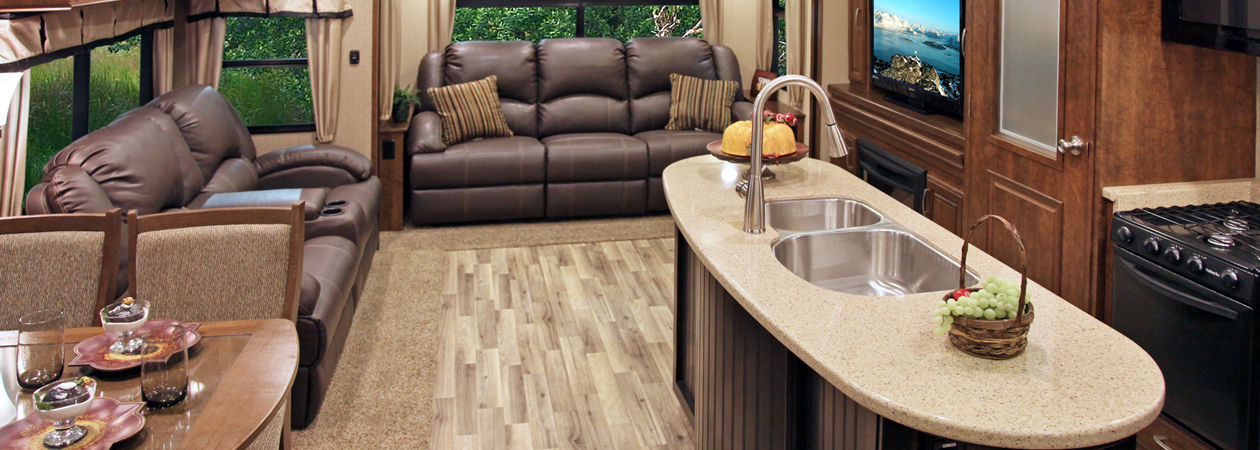
Class A motorhomes are the largest type of RV and are often referred to as “luxury motorhomes”. They are built on a specially designed chassis and are equipped with amenities such as full kitchens, large bathrooms, spacious living areas, and comfortable sleeping quarters. Class A motorhomes can range in size from 30 feet to over 40 feet in length and are typically powered by a gasoline or diesel engine.
Pros:
Class A motorhomes are ideal for families and groups, as they offer plenty of space and comfort for everyone.
They come equipped with all the amenities you need to live comfortably on the road, such as full kitchens, bathrooms, and comfortable sleeping quarters.
With a Class A motorhome, you have the convenience of traveling and camping in the same vehicle, eliminating the need to set up tents or find a place to park your car.
Cons:
Class A motorhomes can be expensive to purchase and maintain, as they are the largest and most luxurious type of RV.
They can be difficult to maneuver, especially in tight spaces or narrow roads, and may require a special license to drive.
Fuel consumption can also be a major concern, as these vehicles can consume a significant amount of fuel due to their size and weight.
Class B Motorhomes
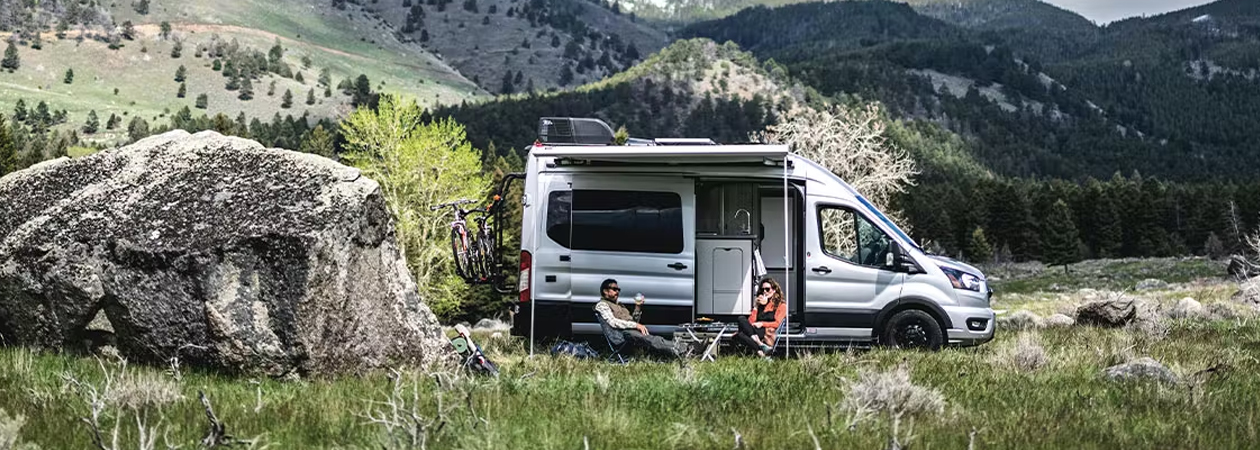
Class B motorhomes, also known as “van campers”, are the smallest type of RV and are built on a van chassis. They are typically equipped with a small kitchenette, sleeping quarters, and a bathroom, and can range in size from 16 feet to 24 feet in length. Class B motorhomes are often powered by a gasoline or diesel engine and are ideal for solo travelers or couples.
Pros:
Class B motorhomes are the most compact and easy-to-drive type of RV, making them ideal for those who enjoy traveling solo or with just one other person.
They are easy to park and maneuver in tight spaces, making them a great option for city camping or exploring narrow roads.
Class B motorhomes are also relatively fuel-efficient, which can save you money on fuel costs.
Cons:
Class B motorhomes are the smallest type of RV and can be cramped, making them less suitable for families or groups.
They may also be less equipped than other types of RVs, with limited space for cooking, sleeping, and storage.
Class B motorhomes can also be expensive, as they are built on a van chassis and come equipped with many amenities.
Class C Motorhomes
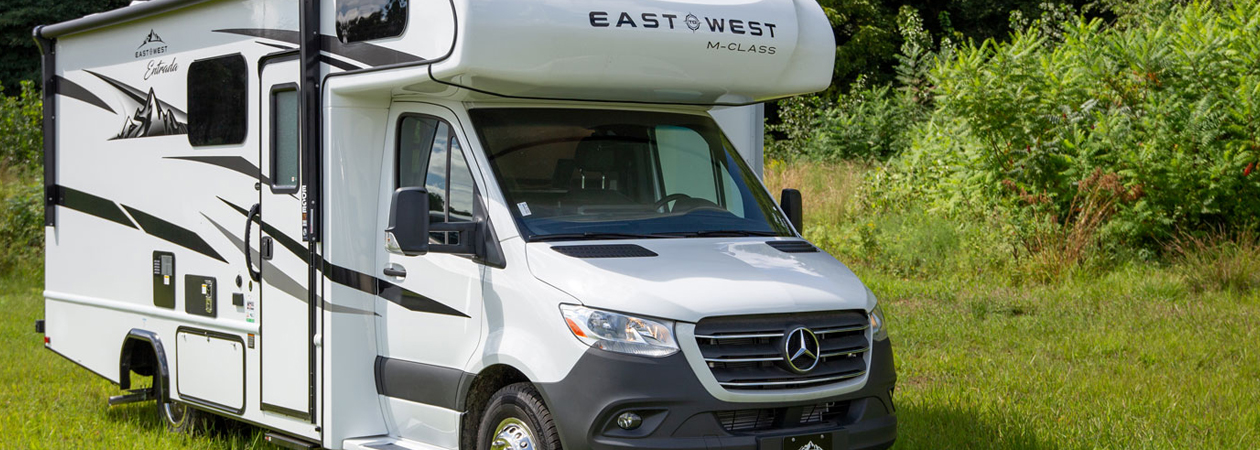
Class C motorhomes are larger than Class B motorhomes and are built on a truck chassis. They typically range in size from 20 feet to 33 feet in length and are equipped with a full kitchen, bathroom, sleeping quarters, and living area. Class C motorhomes are often powered by a gasoline or diesel engine and are ideal for families or groups. They are easy to drive and maneuver, making them ideal for road trips and camping adventures. Class C motorhomes are often more affordable than Class A motorhomes, making them a great option for those on a budget.
Cons:
While larger than Class B motorhomes, Class C motorhomes are still smaller than Class A motorhomes and may not have as much space for storage or living.
They can also be less fuel-efficient than Class B motorhomes, which can be a concern for those who plan to travel long distances.
Class C motorhomes may also require a special license to drive, depending on the size of the vehicle.
Travel Trailers
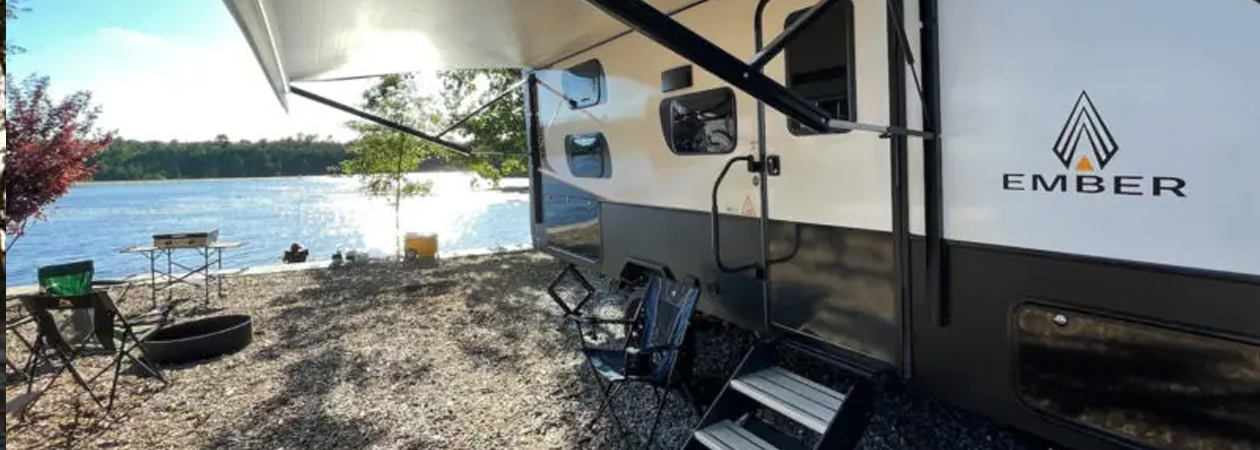
Travel trailers are RVs that are pulled behind a vehicle and can range in size from small pop-up trailers to large, fifth-wheel trailers. They are typically equipped with a kitchenette, sleeping quarters, and a bathroom, and can be towed by a truck or a large SUV.
Pros:
Travel trailers offer a great deal of flexibility, as you can unhitch the trailer from your vehicle and use your car to explore your surroundings.
They come in a range of sizes and styles, making it easy to find one that suits your needs and budget.
Travel trailers are also relatively affordable, making them a great option for those on a budget.
Cons:
Travel trailers require a vehicle with enough towing capacity to pull them, which can be a concern for those who do not own a suitable vehicle.
They can also be difficult to maneuver and park, especially in tight spaces or crowded campgrounds.
Setting up a travel trailer can also be time-consuming and may require assistance, especially for larger trailers.
Toy Haulers
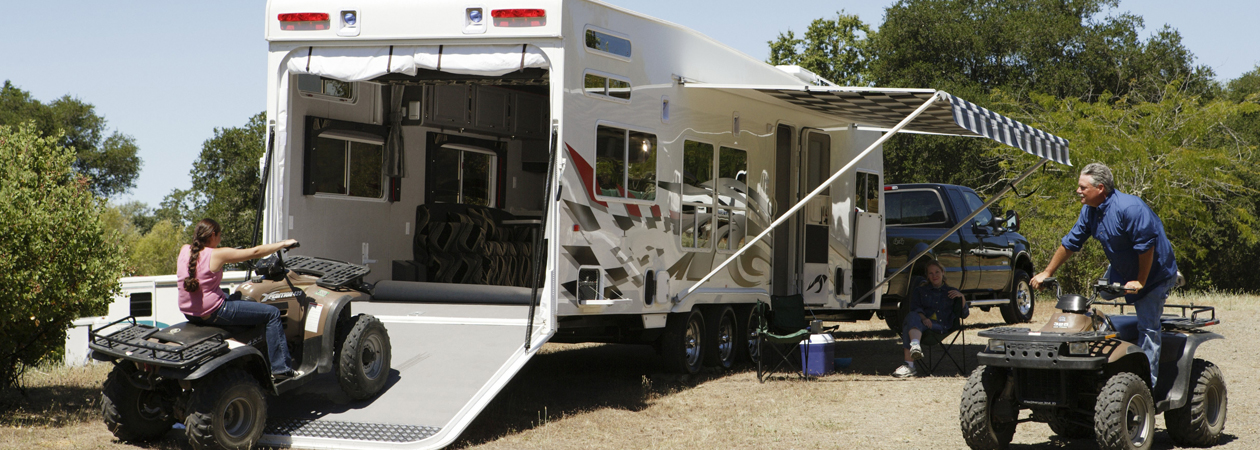
A toy hauler is a type of RV that is designed to carry recreational vehicles, such as ATVs, motorcycles, or golf carts, and includes living quarters. Here are some pros and cons of toy haulers:
Pros:
Versatility: Toy haulers offer the ability to bring along your recreational vehicles, making it easy to enjoy outdoor activities while on the road.
Space: Toy haulers often have more interior living space and storage than other types of RVs, making them ideal for families or groups who need room for both their recreational vehicles and personal belongings.
Convenience: Toy haulers typically come with built-in ramps or garages, making it easy to load and unload your recreational vehicles.
Durability: Toy haulers are often built with strong and durable materials, making them ideal for rugged outdoor activities and off-roading.
Cons:
Cost: Toy haulers can be more expensive to purchase and maintain than other types of RVs, especially if they are larger or have more features.
Towing Capacity: Toy haulers often require a large vehicle with enough towing capacity to pull them, which can be a concern for those who do not own a suitable vehicle.
Fuel Efficiency: Toy haulers can be less fuel-efficient than other types of RVs, especially when towing a large recreational vehicle.
Limited Use: Toy haulers are designed for specific types of recreational activities, making them less suitable for other types of travel or camping.
A toy hauler can be a great option for those who enjoy outdoor activities and need a lot of space and versatility. However, it is important to consider the cost, towing capacity, fuel efficiency, and limited use before making a purchase
Fifth-Wheel Trailers
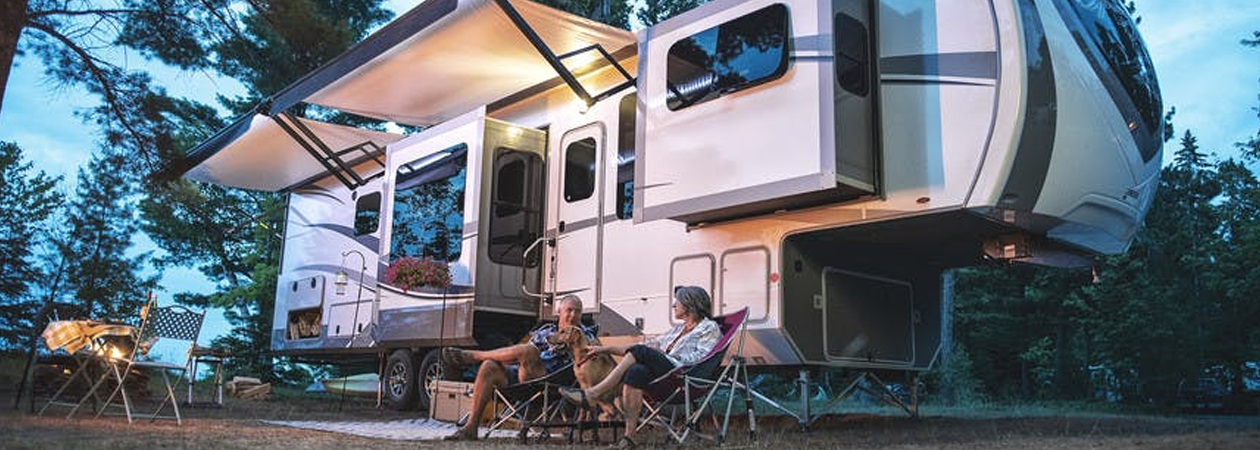
Fifth-wheel trailers are a type of travel trailer that are designed to be pulled by a pickup truck. They are typically larger than other types of travel trailers and offer more space for living and storage. Fifth-wheel trailers are equipped with a full kitchen, bathroom, sleeping quarters, and living area, making them ideal for families or groups.
Pros:
Fifth-wheel trailers offer more space and comfort than other types of travel trailers, making them ideal for families or groups.
They are relatively easy to maneuver and park, especially when pulled by a pickup truck.
Fifth-wheel trailers are also relatively affordable, making them a great option for those on a budget.
Cons:
Fifth-wheel trailers require a pickup truck with enough towing capacity to pull them, which can be a concern for those who do not own a suitable vehicle.
They can also be more difficult to set up and take down than other types of travel trailers.
Fifth-wheel trailers may also be more expensive to purchase and maintain than other types of travel trailers.
The best type of RV for you will depend on your lifestyle, travel preferences, and budget. Class A motorhomes are ideal for families and groups who want the ultimate in luxury and comfort, while Class B motorhomes are perfect for solo travelers or couples who want a compact and easy-to-drive RV. Class C motorhomes are a great option for families or groups who want more space and comfort than a Class B motorhome, while travel trailers and fifth-wheel trailers are ideal for those who want the flexibility and affordability of a towed RV. Ultimately, the best type of RV for you will depend on your individual needs and preferences, so be sure to consider all of the pros and cons of each type of RV before making a final decision.
